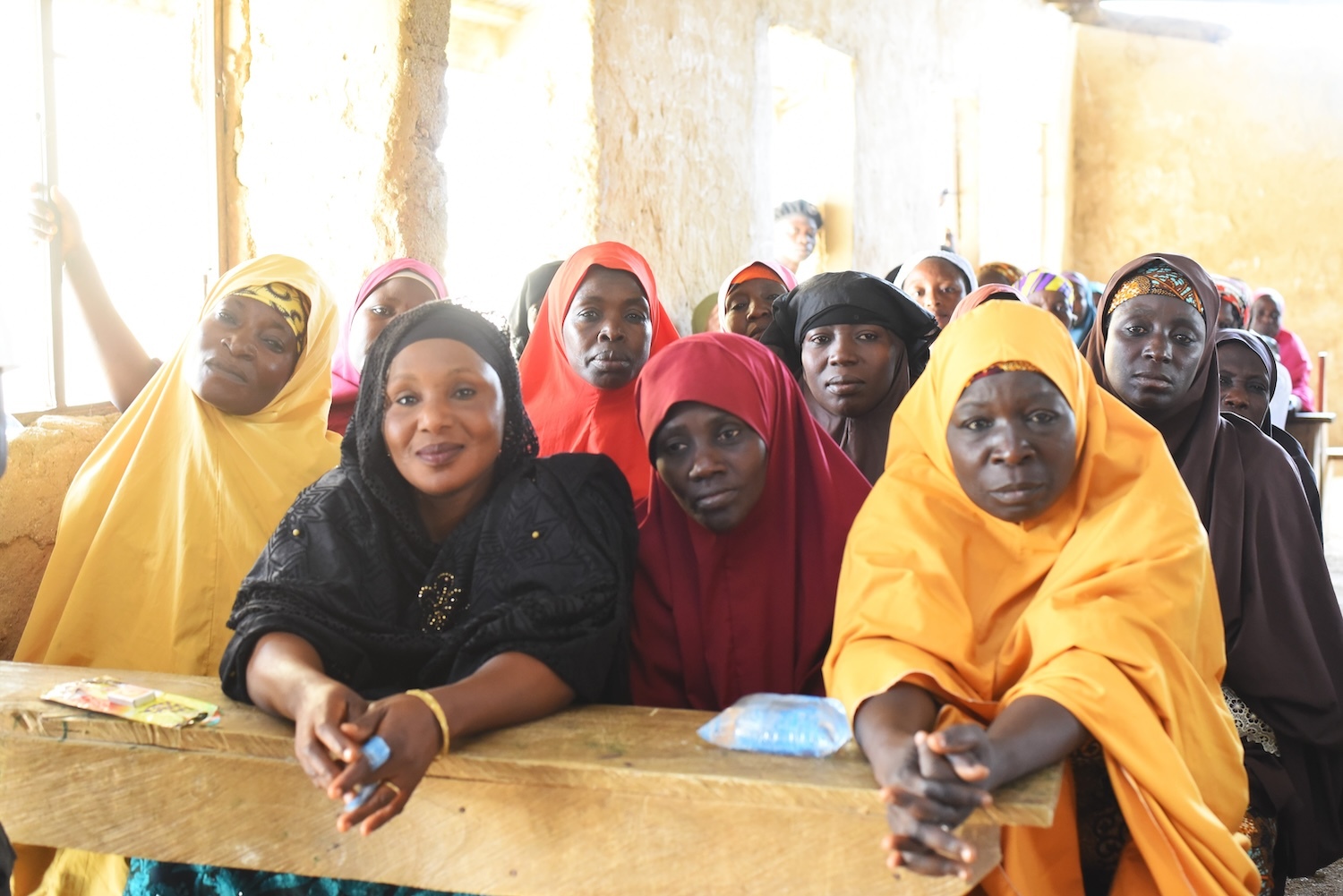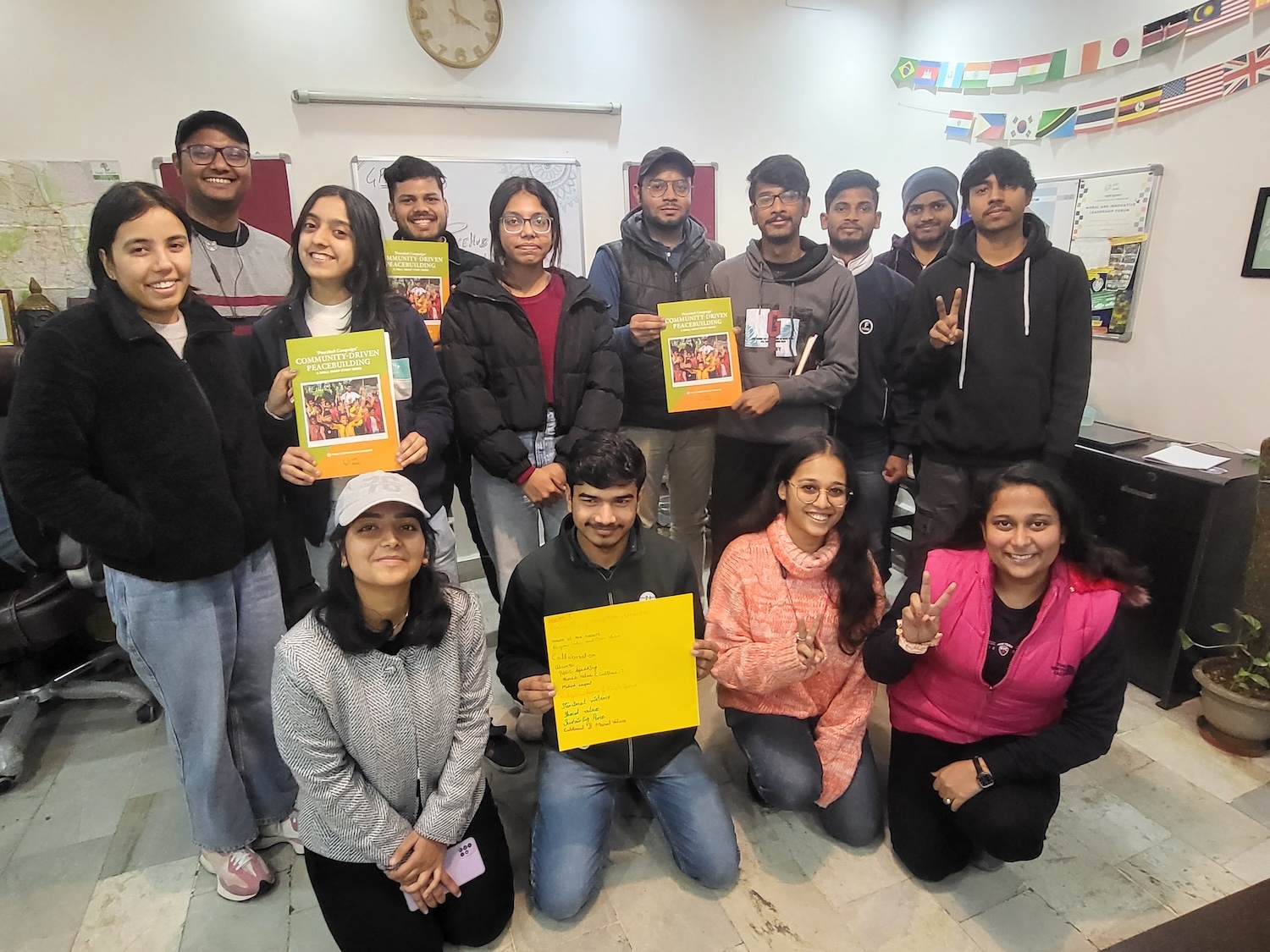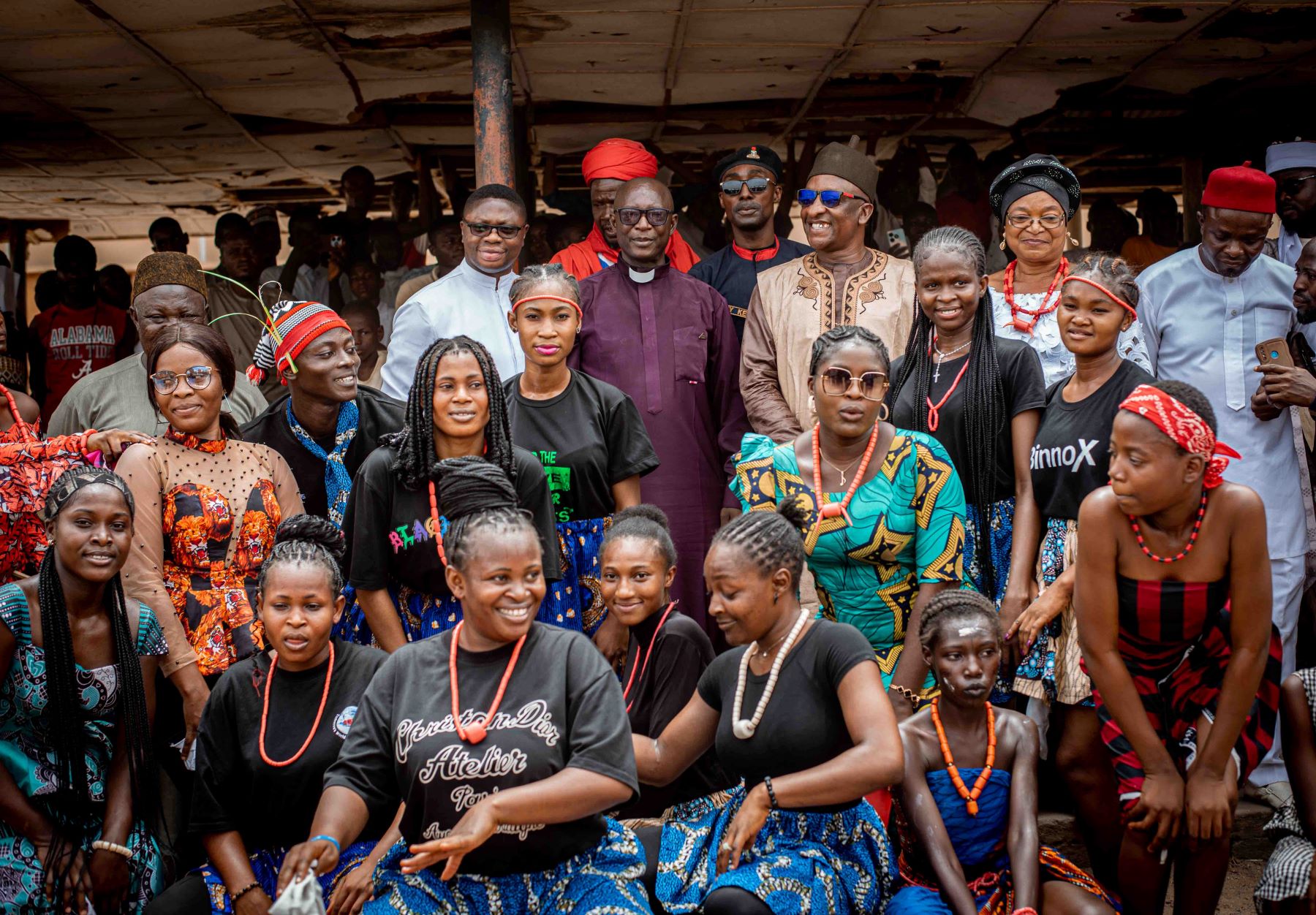“People are taking the law into their own hands,” says Osai Ojigho, director for Amnesty International in Nigeria. “The biggest problem,” says human rights activist Sarli Sardou Nana, “is that the perpetrators are not punished. If nobody is being arrested, if nobody is being [prosecuted], then what people think is: I have to defend myself.”.
In Nigeria, these sentiments are shared by people from all walks of life – from those working with international non-profit organizations to local villagers and migrant herdsman. The President of the U.S. Institute of Peace noted in a 2016 testimony that “violent extremism is caused in large part by grievances tied to social marginalization, political exclusion, lack of access to justice or resources, and repression or abuse by state and security services in these counties.”
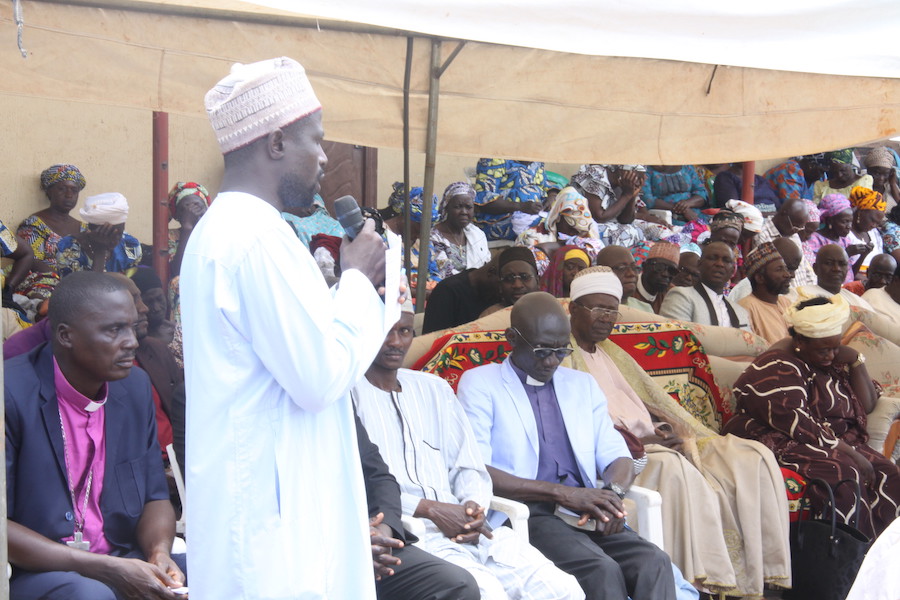
Nigeria leaders in GPF’s interfaith campaign gather for the 2018 International Day of Peace
A commentator who runs a strategy firm in Abuja, Nigeria, Mark Amaza, makes this same point:
This failure by the Nigerian government to be an impartial enforcer of law and order is forcing communities to resort to self-protection, and with that, an increase in anarchy.
These expert opinions reflect similar sentiments expressed to the Global Peace Foundation (GPF) Nigeria team by local villagers of all different backgrounds across Kaduna State. It speaks to higher-level issues such as rule of law, due process and the importance of an impartial criminal justice system, which is a process that requires multisector cooperation on both the top and the grassroots level. This kind of situation further underscores the importance of upholding principles and creating social cohesion around shared values for community peace and resilience.
Lack of trust in the System
A recent case that illustrates this was the handling of one singular ordinary criminal act that then escalated into a state-wide emergency in October of 2018.
In Kasuwa Magani, of the Kajuru Local Government Area in Northwestern Kaduna State, one Hausa Muslim man was caught stealing in the market. The local native villagers caught him and almost beat him to death primarily because they felt that if they did not hold him to account, he would not face the repercussions of his criminal actions. In short, they felt the need to take the law into their own hands.
With this incident, the people from his tribe and religion felt that their own group was under attack, and so a few took revenge on the natives, who were primarily Christians, that beat the man. That then escalated to a point where, according to the official reports, over 60 people were killed. Yet, the violence did not end there.
These incidents created tension across the entire state. This convinced the state governor to visit the people, and they requested that the local traditional ruler accompany him on his visits. On his way back from the visits, tragedy would strike again. The traditional ruler, his wife and two others were kidnapped and some of those with him were killed. The kidnappers asked for ransom, but killed the traditional ruler even after the ransom had been paid.
With this, the whole of Kaduna State was in an intensely tense situation. A state-wide curfew was announced.
Looking back, we can see that all of this could have been avoided if that first criminal act in the market was handled properly with security agencies at the local level. If the people had confidence in the criminal justice system, all that pain, bloodshed and terror across Kaduna State could have been avoided. Moreover, the conflict quickly escalated from one man’s criminal actions into a tribal and religious conflict, with a marked rise in tensions between religious and tribal groups.
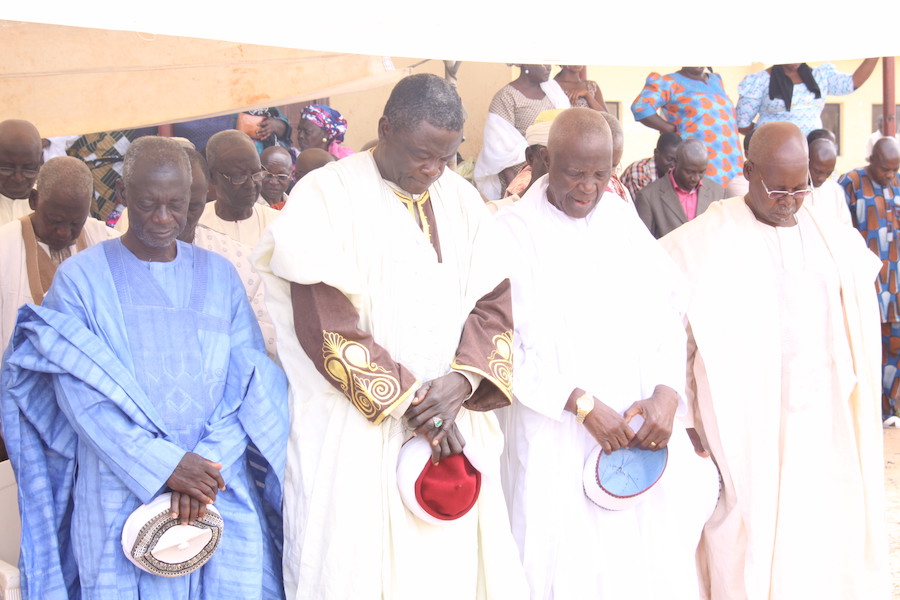
Muslims and Christians pray together during the latest One Family under God gathering in Jaba Chiefdom of Southern Kaduna
On the Importance of Third Parties
On the other hand, there are clear examples where simple but important kinds of engagement between community leaders and security agencies can address, prevent and de-escalate tensions in effective ways.
In 2016 and 2017, Southern Kaduna had experienced intense bouts of violence between Fulani herdsmen and native farmers. Yet with the establishment of the Southern Kaduna Peace and Reconciliation Committee (SKPRC) there was a remarkable abatement of violence in Southern Kaduna. The reduction in tension was so effective that in 2018, with a serious escalation of violence in the neighboring Plateau State, a large number of Fulani herders began migrating to Kaduna for fear of violent reprisals in their home state. For them, Kaduna was a much more accommodating place than Plateau.
During this period of migration, one Fulani herder ran their cattle through some natives’ farmlands, damaging crops and property. This raised tensions immediately and the natives apprehended the herders and would not allow them to leave. When this happened, this information was quickly passed to the representative of SKPRC in the local community.
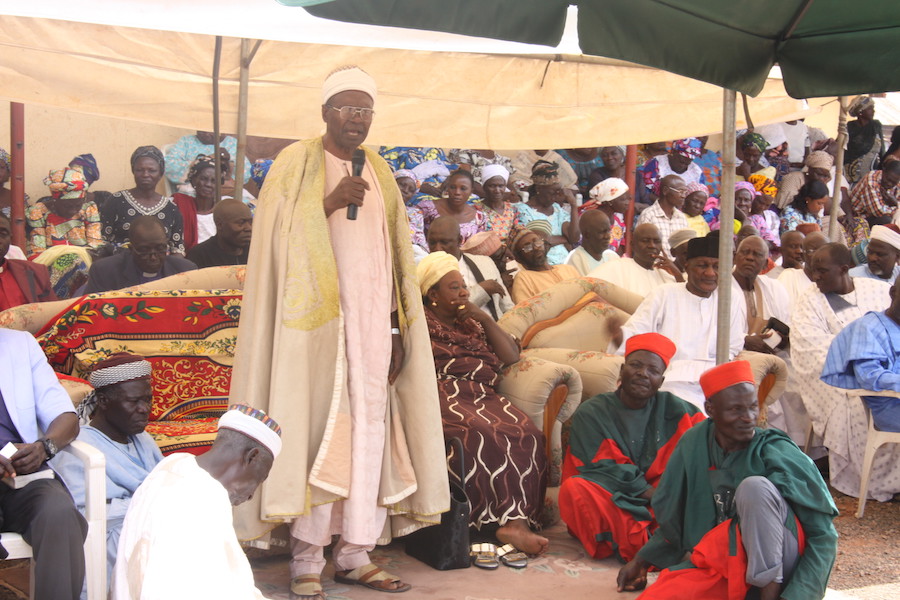
Paramount Ruler of Jaba Chiefdom, His Royal Highness, Dr. Danladi Gyet Maude participates in the latest interfaith gathering in Nigeria
This representative then spoke with both sides, consulted with the SKPRC leaders and, in a matter of hours, was able to work out a peaceful resolution between both parties. Because the SKPRC included both Fulani and native leaders and because they were “moral” rather than legal authorities, the judgments were considered fair and not in any way biased by both parties.
This was all implemented and resolved in a matter of hours. After the consultations, the herdsman paid compensation for the damages, and the herders were freed to go on their way.
This incident can be placed in stark contrast to what would have happened before the establishment and engagement of the SKPRC in the region. Previously, the native farmers would have likely killed the Fulani herdsman and taken his cattle in compensation for the damaged crops. This, in turn, would have caused the Fulani militia to enact a reprisal attack and the cycle of violence would have ensued.
This time, however, with the SKPRC in place, there was a safe place for disputes to be quickly resolved, with a neutral third-party facilitating dialogue and discussion. It is important to note that GPF was able to facilitate all this because of the track record they had built as a trusted, neutral third party in their own right. GPF Nigeria Country Director, John Oko commented, “This is the key to being effective in this kind of work – neutrality. To really address the issues between parties in conflict, it is always necessary to have this kind of neutral third-party.”
With the guiding vision of One Family Under God, GPF worked with local stakeholders to establish this SKPRC and the committee has been building its own track record to become not only a place to resolve conflicts but also a place to share best practices and advance community development.
Working for Global Peace: Lessons for the Korean Peacebuilding Process
Lessons from Nigeria can be gleaned and used for challenges facing other, distant countries, like the Korean peninsula.
One critical lesson would be the importance of a neutral, fair third party that can help build trust between those in the North and the South. GPF has long pushed to involve Mongolia as a potentially significant player in the peacebuilding process, for the simple but crucial fact that it has favorable relations with both North and South Korea. Taken together with Mongolia’s recent history as a nation that was able to peacefully transition from communism to democracy puts it in a unique position to facilitate the peaceful process of Korean reunification.
Another lesson we find—time and time again—is on the importance of everyday, grassroots, people-to-people interactions and relationships. Even with higher level agreements, the local community is where peace needs to truly take hold. After all, if there is no people-to-people interaction between everyday citizens, the people will not be able to build confidence, trust and social cohesion between the two unfortunately very different societies of the divided Korean family.
As owners of the vision of “One Family Under God,” we work to build models that demonstrate the efficacy of the vision in local contexts. In Nigeria, we are learning essential lessons about peace and, essentially, nation-building. We hope to continue learning and improving upon these lessons to be able to share them with our global family. Through this, we hope to spread the transformative culture of One Family Under God to every community around the world.

